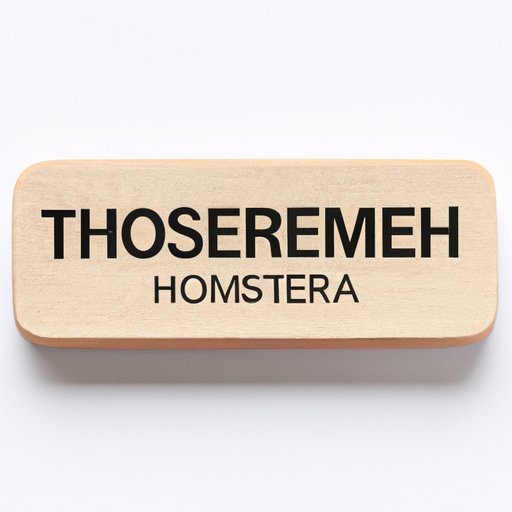
I. Introduction
High testosterone levels have traditionally been associated with men, but women can also struggle with elevated levels of this hormone. High testosterone levels in women can cause a variety of symptoms such as acne, irregular periods, infertility, and hair loss. If you’ve experienced these symptoms, you may be interested in natural remedies to reduce your testosterone levels. In this article, we’ll explore several natural ways to balance testosterone levels in women.
II. Diet and Exercise
A healthy diet and regular exercise can help regulate hormone levels in women. Eating a balanced diet that includes plenty of fruits, vegetables, whole grains, and lean protein can provide your body with essential nutrients needed to maintain balanced hormones. Additionally, a healthy diet can help reduce inflammation in your body that can lead to elevated testosterone levels.
Foods that are rich in vitamin D, magnesium, and zinc should be a top priority for women looking to naturally balance their hormones. Vitamin D can be found in foods such as fatty fish, egg yolks, and fortified foods. Foods that are high in magnesium include spinach, almonds, black beans, and avocados. Zinc-rich foods include oysters, beef, pumpkin seeds, and chickpeas.
Avoiding sugar, processed foods, and excessive caffeine is critical to stabilizing insulin levels, which can have a positive effect on testosterone levels in the body.
Exercise can also have a positive effect on hormone balance. Resistance training has been shown to increase muscle mass, which can help lower testosterone levels. Additionally, aerobic exercise such as running, swimming, or cycling can help reduce stress and improve insulin sensitivity.
III. Herbal Supplements
Herbal supplements are a popular natural remedy for a variety of health concerns, including hormone imbalance. Saw palmetto, spearmint tea, and licorice root extract are three herbal remedies that can help balance testosterone levels in women.
Saw palmetto has been used for decades to treat symptoms of high testosterone levels, particularly those associated with polycystic ovary syndrome (PCOS). Spearmint tea has also been shown to reduce levels of androgens, the hormones that cause high testosterone levels. Licorice root extract can help reduce testosterone levels by blocking an enzyme involved in the production of this hormone.
While herbal supplements can be helpful, it’s important to note that research on their effectiveness is limited, and they can interact with prescription medications. Be sure to talk to your doctor before taking any natural supplements, and always follow the recommended dosage.
IV. Stress Management
Stress can have a significant impact on hormone levels in women, and managing stress is critical to reducing high testosterone levels. Chronic stress can increase cortisol levels, which can affect insulin sensitivity and, in turn, lead to imbalanced hormones.
There are several strategies for managing stress, including deep breathing exercises, yoga, and meditation. Regular exercise can also help reduce stress levels. Additionally, hobbies such as painting, knitting, or gardening can help take your mind off daily stressors and promote relaxation.
V. Sleep Hygiene
Getting quality sleep is essential for hormone health. If you’re struggling to fall or stay asleep, it can exacerbate symptoms of high testosterone levels. Maintaining good sleep hygiene can improve the quantity and quality of your sleep.
Good sleep hygiene includes several practices such as avoiding caffeine or alcohol close to bedtime, creating a comfortable sleep environment, and establishing a regular sleep schedule. Incorporating relaxation techniques such as reading or taking a warm bath before bed can also help signal your body that it’s time to wind down and prepare for sleep.
VI. Medical Considerations
If you’ve tried natural remedies and are still experiencing symptoms of high testosterone levels or have concerns about your health, it’s important to speak with a healthcare provider. Your healthcare provider can run tests to determine if your testosterone levels are elevated and suggest appropriate medical treatments. Treatment options may include hormone replacement therapy or medications that block androgen production.
VII. Conclusion
If you’re struggling with high testosterone levels, know that there are natural ways to balance your hormones. Through a combination of a healthy diet, regular exercise, herbal supplements, stress management, and quality sleep hygiene, you can create a comprehensive approach to reducing high testosterone levels. If you’re unsure about which remedies may work for you, it’s always best to talk with a healthcare provider who can guide you in the right direction.




